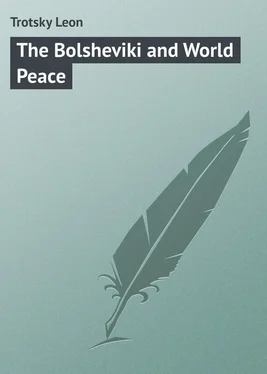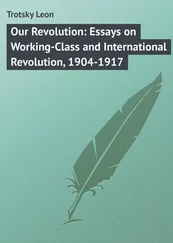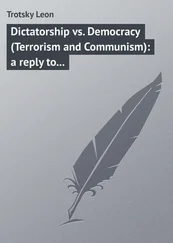Leon Trotsky - The Bolsheviki and World Peace
Здесь есть возможность читать онлайн «Leon Trotsky - The Bolsheviki and World Peace» — ознакомительный отрывок электронной книги совершенно бесплатно, а после прочтения отрывка купить полную версию. В некоторых случаях можно слушать аудио, скачать через торрент в формате fb2 и присутствует краткое содержание. ISBN: , Жанр: foreign_language, Русская классическая проза, на английском языке. Описание произведения, (предисловие) а так же отзывы посетителей доступны на портале библиотеки ЛибКат.
- Название:The Bolsheviki and World Peace
- Автор:
- Жанр:
- Год:неизвестен
- ISBN:http://www.gutenberg.org/ebooks/40273
- Рейтинг книги:4 / 5. Голосов: 1
-
Избранное:Добавить в избранное
- Отзывы:
-
Ваша оценка:
- 80
- 1
- 2
- 3
- 4
- 5
The Bolsheviki and World Peace: краткое содержание, описание и аннотация
Предлагаем к чтению аннотацию, описание, краткое содержание или предисловие (зависит от того, что написал сам автор книги «The Bolsheviki and World Peace»). Если вы не нашли необходимую информацию о книге — напишите в комментариях, мы постараемся отыскать её.
The Bolsheviki and World Peace — читать онлайн ознакомительный отрывок
Ниже представлен текст книги, разбитый по страницам. Система сохранения места последней прочитанной страницы, позволяет с удобством читать онлайн бесплатно книгу «The Bolsheviki and World Peace», без необходимости каждый раз заново искать на чём Вы остановились. Поставьте закладку, и сможете в любой момент перейти на страницу, на которой закончили чтение.
Интервал:
Закладка:
The Bolsheviki and World Peace
INTRODUCTION
The voice that speaks in this book is the voice of Leon Trotzky, the Bolshevik Minister of Foreign Affairs for Revolutionary Russia. It is expressing ideas and views which lighted him on the course of his policy toward the War, Peace and the Revolution. It throws light, therefore, on that policy; it helps to an understanding of it, if one wishes to understand. But that isn't all. The spirit that flames and casts shadows upon these pages is not only Trotzky's. It is the spirit also of the Bolsheviki; of the red left of the left wing of the revolutionary movement of New Russia. It flashed from Petrograd to Vladivostok, in the first week of the revolt; it burned all along the Russian Front before Trotzky appeared on the scene. It will smoulder long after he is gone. It is a hot Fact which has to be picked up and examined, this spirit. Whether we like it or don't, it is there; in Russia; it is elsewhere; it is everywhere to-day. It is the spirit of war; class war, but war. It is in this book.
Nor is that all.
The mind in this book-the point of view from which it starts, the views to which it points-Trotzky's mind is the international mind. We have heard before of this new intelligence; we have read books, heard speeches, witnessed acts demonstrative of thoughts and feelings which are not national, but international; not patriotic, but loyal only to the lower-class-conscious war aims of the workers of the world. The class warrior is as familiar a figure to us as the red spirit is of the red left of revolution. But the voice which utters here the spirit and the mind, not only of the Russian, but of the world revolution is the voice of one having authority.
And Trotzky, in power, has been as red as he is in this book. The minister of foreign affairs practised in Petrograd what he preached in Switzerland, where he wrote most of the chapters of his book. And he practised also what all the other great International Socialist leaders talked and wrote.
That's what makes him so hard to understand, him and his party and the Bolshevik policy. We are accustomed to the sight of Socialists and Radicals going into office and being "sobered by the responsibilities of power." French and Italian Socialists in the Liberal ministries of their countries; British Labor leaders in Parliament in England or in the governments of their Colonies; and the whole Socialist party in Germany and Austria (except Liebknecht in prison) – all are examples of the effect of power upon the International Mind. The phenomenon of compromise and surrender is so common that many radicals oppose the taking of any responsible office by any member of their parties; and some of the extremists are advocating no political action whatsoever, nothing but industrial, economic or what they call "direct action." (Our I.W.W.'s don't vote, on principle.) This is anarchism.
Leon Trotzky is not an anarchist; except in the ignorant sense of the word as used by educated people. He is a Socialist; an orthodox Marxian Socialist. But he has seen vividly the danger of political power. The body of this book was addressed originally to the German and Austrian Socialists, and it is a reasoned, but indignant reproach of them for letting their political position and their nationalistic loyalty carry them away into an undemocratic, patriotic, political policy which betrayed the weaker nations in their empires, helped break up the Second (Socialist) International and led the Socialist parties into the support of the War.
Clear upon it, Trotzky himself does not illustrate his own thesis. He not only detests intellectually the secrecy and the sordid wickedness of the "old diplomacy"; when he came as minister into possession of the archives of the Russian Foreign Office, he published the secret treaties.
That hurt. And so with the idea of a people's peace. All the democratic world had been talking ever since the war began of a peace made, not by diplomats in a private room, but by the chosen representatives of all the peoples meeting in an open congress. The Bolsheviki worked for that from the moment the Russian Revolution broke; and they labored for the Stockholm Conference while Paul Milyoukov and Alexander Kerensky were negotiating with the allied governments. When the Bolsheviki succeeded to power, Lenine and Trotzky formally authorized and officially proposed such a congress. Moreover Trotzky showed that they were willing, if they could, to force the other countries to accept the people's peace conference.
This hurt. This hurt so much that the governments united in extraordinary measures to prevent the event. And when they succeeded, and it was seen that no people's peace could be made openly and directly, Trotzky proceeded by another way to get to the same end. He opened negotiations with the Kaiser's government and allies; arranged an armistice and agreed tentatively upon terms of peace.
This act not only hurt; it stunned the world, and no wonder! It was like a declaration of war against a whole world at war. It was unbelievable. The only explanation offered was that Trotzky and Lenine were pro-German or dishonest, or both, and these things were said in high places; and they were said with conviction, too. Moreover this conviction colored, if it did not determine, the attitude the Allies took toward New Russia and the peace proposals Trotzky got from the German government. Was this assumption of the dishonesty of Trotzky the only explanation of his act?
This book shows, as I have said, that Trotzky saw things from the revolutionary, international point of view, which is not that of his judges; which is incomprehensible to them. He wrote it after the War began; he finished the main part of it before the Russian Revolution. It is his view of the War, its causes and its effects, especially upon international Socialism and "the" Revolution. These are the things he holds in his mind all through all these pages: "the" Revolution and world democracy. Also I have shown that, like the Russians generally, his mind is literal. The Russians mean what they say, exactly; and Trotzky not only means, he does what he writes. Putting these considerations together, we can make a comprehensible statement of the motive and the purpose of his policy; if we want to comprehend.
To all the other secretaries of state or of foreign affairs in the world, the Russian Revolution was an incident, an interruption of the War. To Minister Trotzky it was the other way around.
The World War was an incident, an effect, a check of "the" Revolution. Not the Russian Revolution, you understand. To Trotzky the Russian Revolution is but one, the first of that series of national revolutions which together will become the Thing he yearns for and prophesies: the World Revolution.
His peace policy therefore is a peace drive directed, not at a separate peace with the Central Powers; and not even at a general peace, but to an ending of the War in and by "the" Revolution everywhere.
Especially in Germany and Austria. He said this. The correspondent of the London Daily News cabled on January 2, right after the armistice and the agreement upon peace terms to be offered the Allies, that "Trotzky is doing his utmost to stimulate a revolution in Germany… Our only chance to defeat German designs is to publish terms (from the Allies) … to help the democratic movement in Germany."
Trotzky is not pro-German. He certainly was not when he wrote this book. He hates here both the Austrian and the German dynasties, and his ill-will toward the House of Hapsburg is so bitter that it sounds sometimes as if there were something personal about it. And there is. He shows a knowledge of and a living sympathy with the small and subject nations which Austria rules, exploits and mistreats. He blames his Austrian comrades for their allegiance to a throne which is not merely undemocratic, but "senile" and tyrannical. That he, the literal Trotzky, would turn right around and, as the Russian Minister of Foreign Affairs, do what he had so recently criticized the Austrian Socialists for doing is unlikely.
Читать дальшеИнтервал:
Закладка:
Похожие книги на «The Bolsheviki and World Peace»
Представляем Вашему вниманию похожие книги на «The Bolsheviki and World Peace» списком для выбора. Мы отобрали схожую по названию и смыслу литературу в надежде предоставить читателям больше вариантов отыскать новые, интересные, ещё непрочитанные произведения.
Обсуждение, отзывы о книге «The Bolsheviki and World Peace» и просто собственные мнения читателей. Оставьте ваши комментарии, напишите, что Вы думаете о произведении, его смысле или главных героях. Укажите что конкретно понравилось, а что нет, и почему Вы так считаете.











